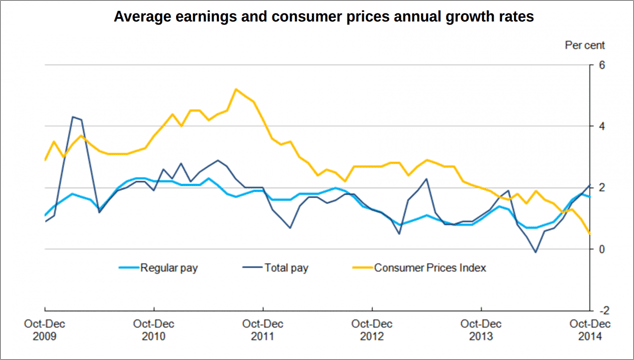
What happened?
The Office for National Statistics announced some good news: average pay rose 2.1% (or 1.7% without bonuses) in the last quarter of 2014. “Wage growth had been the missing piece of the UK’s economic recovery”, said the Financial Times, but now the prospects are good.
Inflation is at its lowest level for at least nine years (and probably much longer), and Britons’ spending power is increasing. The latest figures suggest the first rise in real wages since before the financial crisis.
So what does this mean?
With more money in their pockets, consumers will start to spend more on retail goods. What’s more, inflation will probably pick up (after it’s gone even lower – Bank of England governor Mark Carney reckons it’ll stay “close to zero for the remainder of the year”).
What’s next?
According to Capital Economics, more good news could be on the way, with nominal pay set to accelerate further over the next few months as inflation crawls downward.
We might just see a shift in the Bank of England’s interest rate policy, too. The bank’s Monetary Policy Committee (MPC) voted unanimously to keep interest rates at historic lows of 0.5% as little as two weeks ago.
After this report, however, they might start to consider changing their tune; after all, rising pay is the best indicator of rising interest rates. It’s a long-shot, but certainly likelier than it was last week. Watch this space.